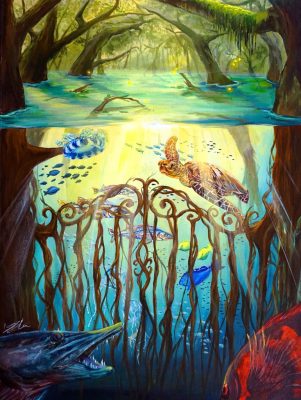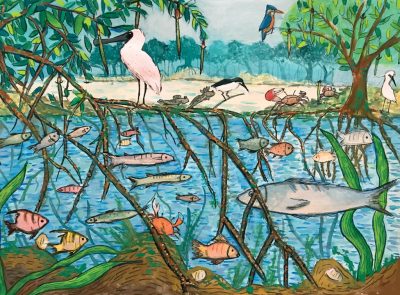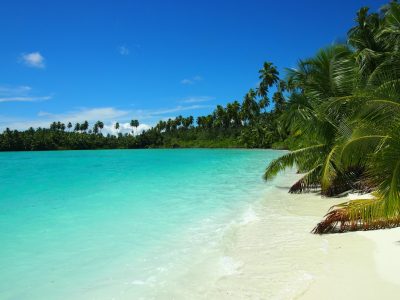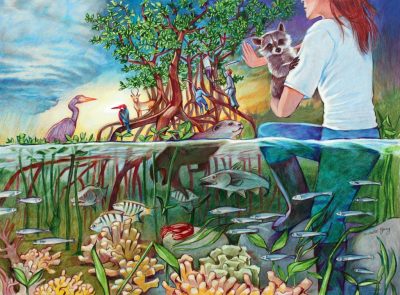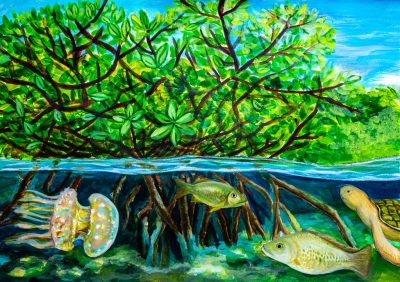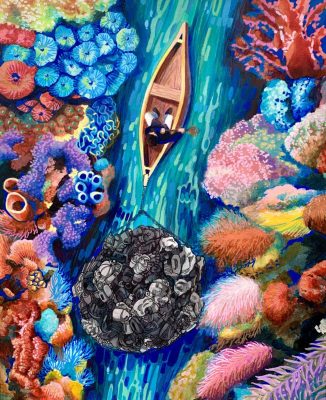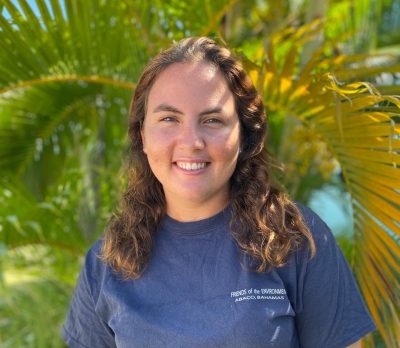
Meet Sharon Our 2021 Art Contest Winner (Ages 15-19)
Aside from viewing at all the incredible art that we receive during the Science Without Borders® Challenge, one of my favorite tasks is getting to meet the contest winners and their families and teachers. This year I had the pleasure of getting

